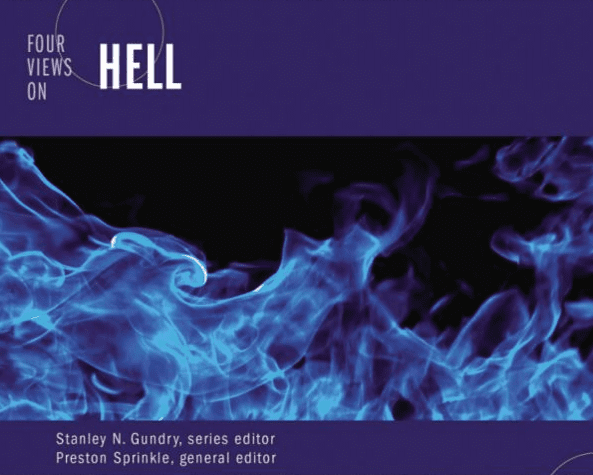This post is by Jeff Cook, someone well known to readers of the Jesus Creed blog. Jeff is weighing on the Francis Chan promotional video on his new book, a book responding to Rob Bell’s book. Jeff is a pastor-philosopher and has done some serious thinking on the issues of new creation and judgment.
Another well-known pastor has thrown his hat into the ring regarding hell.
Francis Chan recently posted an ad for his book Erasing Hell: What God Said about Eternity, and the Things We Made Up which is set to release in July. I have deep respect and love for Chan, his heart and his work. As one who will probably disagree with Chan’s conclusions in his upcoming book, let me affirm a handful of worthy aspects of his ad which the church collectively can continue to celebrate in one voice. I affirm the need for humility when talking about God, theology, and points of contention within the church. I affirm the need to be hyperaware of our tone when speaking about hell (as Chan said, “We are talking about real people here.”) I affirm that “everything” needs to be on the table and that it is paramount to not misrepresent God. And I affirm that for those of us who are truly invested in this conversation—“Confess, pray, fast, and study diligently, because we can’t afford to be wrong on this issue”—is an outstanding pastoral affirmation.
Now I’m not a theologian; I’m a philosopher, and in Chan’s presentation are a handful of very important philosophic claims. I am in no way critiquing Chan’s book (which again hasn’t been released yet). I am only critiquing the arguments he puts forward in this preview.
At the crux of his presentation, Chan says, “I’m a piece of clay trying to explain to other pieces of clay what the potter is like. It’s silly to think we are experts on him. Our only hope is that he would reveal to us what he is like, and then we repeat those things.” This is the starting point and it’s a claim about what can and cannot be known about God.
In this spirit Chan cites Isaiah 55 (“Your thoughts are not like my thoughts. Your ways not like my way.”) and then he begins to critique an argument which (I think it’s safe to assume) is a reason he has heard for rejecting hell as eternal conscious torment. He says,
“So when we begin an argument with, “Well, I wouldn’t believe in a God who would…” Who would what? Do something that you wouldn’t do? Or think in a way that’s different than the way you think? Do you ever even consider the possibility that maybe the creator’s sense of justice is actually more developed than yours? And that maybe his love and his mercy are perfect, and that you could be the one that is flawed? See when we make statements like, “Well God wouldn’t do this would he?” Do you understand that at that moment you are actually putting God’s actions in submission to your reasoning?”
It seems to me, the central point Chan wishes to make in the ad flows from these claims and questions and I would like to advance and defend the following three critiques outlined in bold.
(1) In contrast to Chan’s claim, we need to rationally wrestle with our views about who God is and what he does, and to fail to do so is sloth. Scripturally speaking God invites us to use our minds when engaging who he is and what he does (Isa 1:18, Rm 12:2, among many others). In fact, we put God’s actions “in submission to our reasoning” every time we say that what God does is praise-worthy, loving, good, just, wise, self-sacrificial, etc, These are all rational assessments of God’s nature, actions, and character—and they should not be avoided. I can bring into this discussion two quotations from those who have pondered Job — one from C.S. Lewis and one from Robert Gordis.
C.S. Lewis: “The point [of Job] is that the man who accepts our ordinary standard of good and by it hotly criticizes divine justice receives the divine approval: the orthodox, pious people who palter with that standard in the attempt to justify God are condemned. Apparently the way to advance from our imperfect apprehension of justice to the absolute justice is not to throw our imperfect apprehensions aside but boldly to go on applying them” (“De Futilitate,” in Christian Reflections, 70).
“Faced with the tragic dilemma of a righteous man’s suffering in an immoral world created by a righteous God, Job is nevertheless unwilling to surrender his ideal of rectitude ” (R. Gordis, Book of God and Man: A Study of Job , 153).
(2) There’s a real problem with criticizing all claims that begin with, “I wouldn’t believe in a God who would….” We should choose not to believe in a God who would … repeatedly torture 3 year olds for fun. We should choose not to believe in a God who would …. command cowardice, betrayal, abuse, and ignorance? “Belief in God” implies trust and devotion, and it seems to me *some* pictures of God are not worthy of either trust or devotion.
Now, if I say, “I wouldn’t believe in a God who would … create a few billion people, knowing that they will never believe in him and are irreversibly destined to suffer in unending isolation and fire,” that *can be* an appropriate move. I can make that move while acknowledging that my course of action “might be the one flawed.” I can make that move while acknowledging that God’s “sense of justice” is superior to mine, and that God thinks about things in a different way than I do. What those who defend the traditional view of hell must do is showcase why a good God *could* think unending conscious torment is the best option for the damned. Otherwise, it seems appropriate for a reasonable person (if they believe a “good” being by definition will not create conditions in which a person will experience torment for countless lifetimes) to either reject that picture of God or reject that view of hell.
(3) The idea of “justice” must be the same for God and for us, otherwise the term lacks linguistic value. Chan asks, “Do you ever even consider the possibility that maybe the creator’s sense of justice is actually more developed than yours?” Of course it is in one sense, but if God’s concept of justice is radically different than ours then it makes no sense for us to call God “just” any more. If we are to talk about “justice” at all, the definition must hold for ants as well as deities, otherwise we are talking of apples and oranges and all such language breaks down.
Regarding hell, what Chan and others must do is show how the traditional view of hell is in any way “just,” and philosophically speaking I have not seen this done well in either academic or popular Christian literature. Many who reject the traditional view of hell (or the Christian God because of it) hold to a principle — “There is no state of affairs in which it is appropriate to incarcerate a human being in a state of eternal, conscious torment.” As I suggested before, this requires a response from those who hold the traditional view of hell; they must show that it is in fact “just” to do so. The response that, “God knows things we don’t” or “God does things we wouldn’t do” is insufficient here (In philosophical jargon, this is a “phantom argument”). Some kind of story needs to be told that makes initiating eternal conscious torment morally praise-worthy and in accord with what we mean (or should mean) by “justice.”
On one hand I applaud Chan’s ad. It moves the discussion on hell forward in the church at large. However, it seems to me that those who affirm the traditional view of hell need to do more than say “this is what the Bible says and we’re just repeating it.” Everyone involved in the debate about hell right now is saying “the Bible says”. What those who affirm the traditional view must show is why that view is worthy of devotion.











